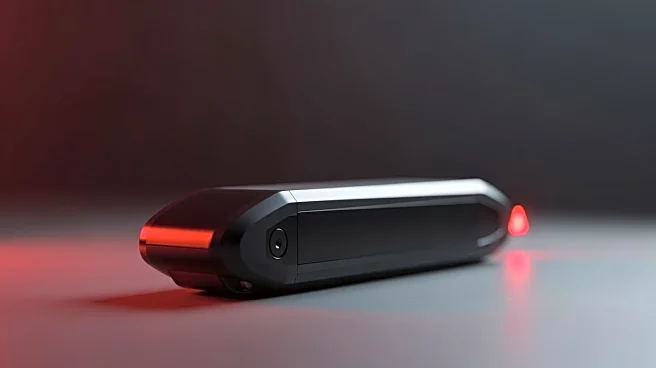What's Happening?
The U.S. Consumer Product Safety Commission (CPSC) has issued a warning to consumers regarding lithium-ion batteries used in Rad Power Bikes e-bikes, specifically model numbers RP-1304 and HL-RP-S1304.
These batteries pose a significant risk of fire and explosion, which can lead to serious injury or death. The CPSC has received 31 reports of fires, including 12 incidents of property damage totaling approximately $734,500. Some fires occurred even when the batteries were not charging or in use. Consumers are advised to immediately remove and dispose of these batteries following local hazardous waste procedures. Rad Power Bikes, the importer based in Seattle, Washington, has not agreed to a recall due to financial constraints, preventing them from offering replacements or refunds. The batteries were sold with various Rad Power Bikes models and as replacements, priced between $550 and $2,000. Manufactured in China, these batteries were available through RadPowerBikes.com, Best Buy, and independent bike shops nationwide.
Why It's Important?
This warning highlights significant safety concerns associated with lithium-ion batteries, which are commonly used in various consumer electronics and vehicles. The inability of Rad Power Bikes to offer a recall or replacement due to financial limitations underscores the challenges faced by companies in managing product safety issues. The situation raises questions about consumer protection and the responsibilities of manufacturers and importers in ensuring product safety. The potential for serious injury or property damage from these batteries could lead to increased scrutiny and regulatory actions on battery safety standards. Consumers who own these e-bikes are directly affected, facing potential safety risks and financial losses without recourse for refunds or replacements.
What's Next?
The CPSC's warning may prompt further investigations into the safety of lithium-ion batteries used in consumer products. Rad Power Bikes may face pressure to find alternative solutions to address the safety concerns, possibly through partnerships or financial restructuring. Consumers are advised to inspect their batteries for signs of damage or corrosion and to cease usage if any issues are detected. The broader industry may see increased regulatory oversight and potential changes in safety standards for battery manufacturing and testing. Stakeholders, including consumer advocacy groups, may push for legislative measures to enhance consumer protection in similar cases.
Beyond the Headlines
The situation with Rad Power Bikes highlights the ethical and legal challenges companies face when balancing financial viability with consumer safety. The refusal to recall the batteries due to potential business closure raises questions about corporate responsibility and the prioritization of consumer safety over business interests. This case may influence future policies on how companies should handle product recalls and safety warnings, especially when financial constraints are involved. The incident could also lead to increased consumer awareness and demand for transparency in product safety testing and certification processes.










